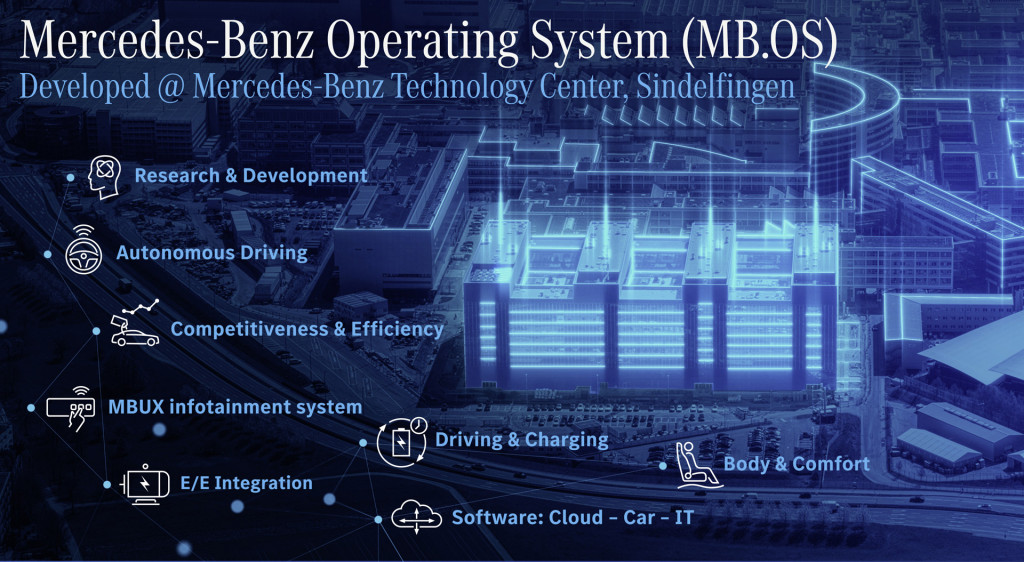Mercedes-Benz on Tuesday provided insight into plans to deliver in-house-developed operating and navigation systems to be used across its lineup in the years ahead.
Many automakers today rely on off-the-shelf systems like Linux and QNX, and more recently Google Android. However, switching to an in-house system provides automakers with greater control and flexibility, and increasingly, new financial opportunities.
Mercedes started work on its operating system, dubbed MB.OS, in 2021, and on Tuesday the automaker said the system will be introduced around the middle of the decade in a next-generation compact car lineup based on the MMA platform. The first MMA-based car has already been spotted testing.
MB.OS will cover a wide spectrum of vehicle domains including infotainment, self-driving technology, comfort, powertrains, and charging. Because of in-house development, Mercedes will have full control over updates and upgrades, as well as the security of any personal data.

Mercedes-Benz Operating System (MB.OS)
“We made the decision to be the architects of our own operating system—a unique chip-to-cloud architecture that leverages its full access to our vehicles’ hardware and software components,” Ola Källenius, Mercedes' CEO, said in a statement.
The new OS will also provide Mercedes with new opportunities to grow revenues, for instance by offering subscriptions or one-off upgrades to digital features that can be added after the purchase of the vehicle. Mercedes has already introduced subscriptions, including one to boost performance on certain EVs.
An in-house OS will also make it easier for Mercedes to deliver a user experience suited to its own vehicles and customers. An example is the navigation system Mercedes is developing for its OS, which will rely on information supplied by Google Maps but feature Mercedes' own interface. This will be particularly helpful for EVs, as the navigation system will be able to provide precise information on remaining range as it will have access to all vehicle data, including state of charge and energy consumption.
Mercedes on Tuesday also announced plans to upgrade its Drive Pilot Level 3 self-driving system. Drive Pilot already enables a vehicle to handle itself on select highways, albeit only at speeds of up to 37 mph. Mercedes said its ultimate goal for the system is to have it function at speeds of up to 80 mph, though timing wasn't mentioned. The highways where Drive Pilot currently functions are limited to Germany and Nevada.
